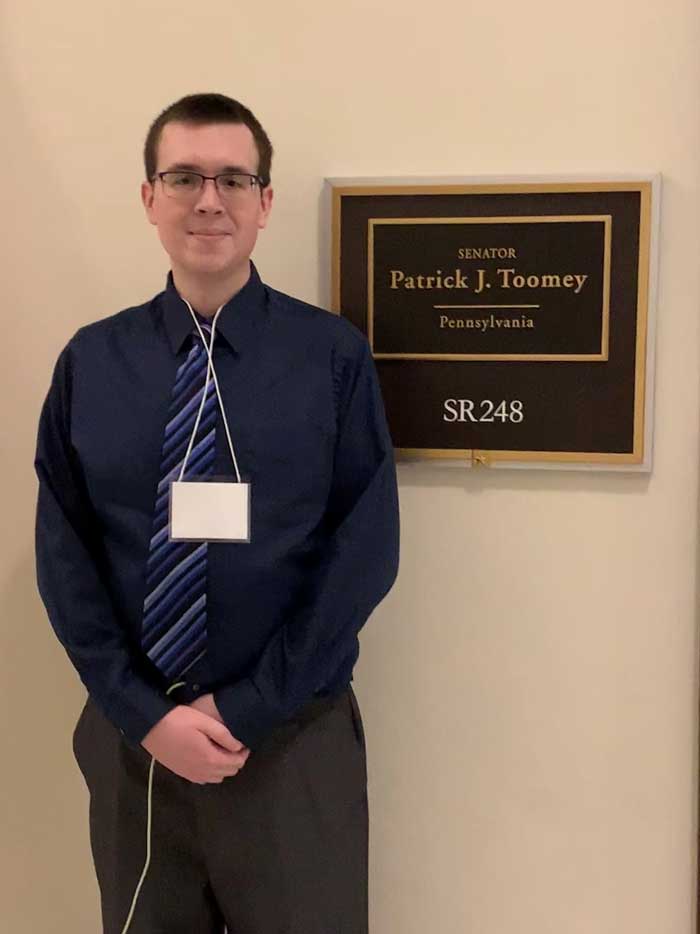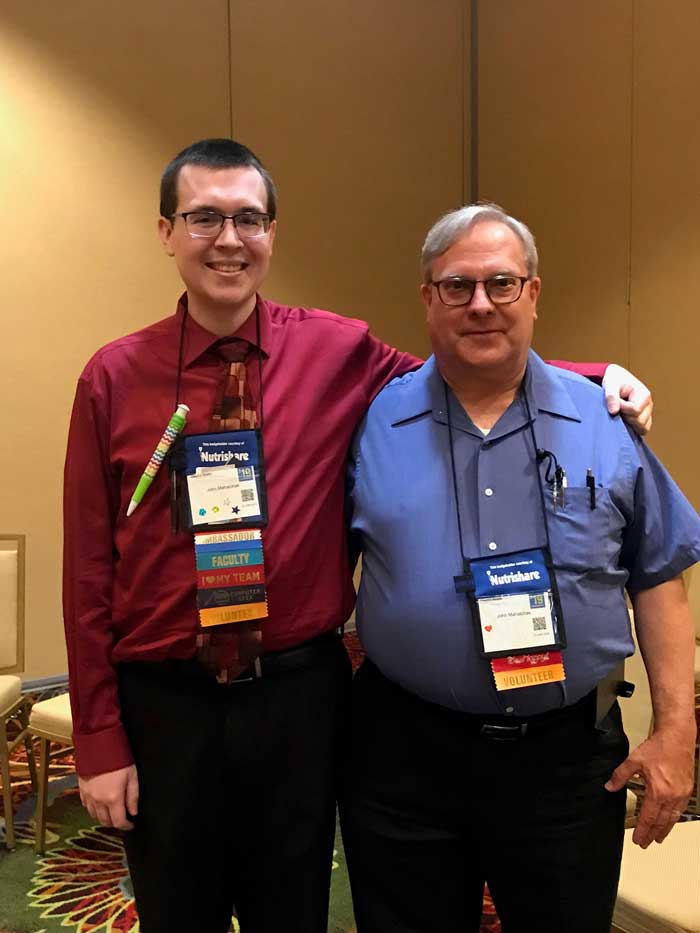 Pennsylvania
Pennsylvania
Advocate
I first became ill during my freshman year at college, and if you would have told me then that I would find a passion for being a patient advocate, I wouldn’t have believed you (or even knew such a position existed). As is often the case with GI disease, I was diagnosed with an “alphabet soup” of conditions, including pancreatitis, GERD, gastroparesis, and NASH. I also was placed on a feeding tube due to malabsorption and IV fluids to prevent dehydration.
Needless to say, I am comfortable being called a “patient”. But what about an advocate? To me, advocacy can be boiled down to two ideas. The first is advocating with my fellow patients. This includes things like sharing tips to improve quality of life, reducing the stigma around mental health with a chronic illness, and providing non-medical advice.
A few years back, I had the opportunity to join with three other young adult advocates to lead a breakout session at a patient advocacy organization’s annual conference. We facilitated a discussion exploring social health and mental health for young adults living with chronic illness. After our session, a mother of a young girl approached us to express gratitude to us for sharing our story. She was told by her daughter’s doctor that she would struggle to live a normal life due to her condition, and was relieved to see us thriving. I like to share this story because it shows how much of an effect you can have on others by simply sharing your story.
As another example, most hospitals have implemented patient/family advisory councils (PFAC). While each hospital’s implementation of PFACs may differ, the general principle is the same: ensuring that the patient voice is shared with the hospital. I was lucky enough to get selected to serve on the PFAC at my local academic medical center. Some items that my hospital’s PFAC helps with include reviewing new handouts and other patient facing documents, providing feedback on new policies and procedures, and serving as a resource to other hospital departments. While not interacting with patients directly, I still would place this opportunity under the “advocating with patients” umbrella. By participating in PFACs, you have an opportunity to advocate for all patients, not just those on the committee.
The other type of advocacy is what most people associate with advocacy, and that is working with the other stakeholders in the healthcare system, and having an open connection with your elected officials.
One of the first government advocacy opportunities I participated in was attending a FDA Advisory Council meeting. For those unfamiliar, these meetings bring together the pharmaceutical company, an independent panel of experts, as well as some staff from the FDA, to review new medications and medical devices. I was amazed to see the length that the committee went to to ensure the patient voice was heard. In fact, in addition to the experts on the committee, at least one patient is included as a full, voting member. I never realized how much time and effort go into ensuring a medication is safe and effective, and it was comforting to know that new pharmaceutical products are reviewed in such a thorough manner not just by healthcare workers, but also by patients. After all, patients bring with them years of learned experience.
On the way back home from the Advisory Council meeting, I realized that I had found my calling. About a month later, I went to Capital Hill to share my story with the House and Senate. The program was put together by the Digestive Disease National Coalition (DDNC). On the first day, we learned about pending legislation and how to be an effective advocate. The following day, we met with our Senators and Representatives to explain why our legislative “asks” would be beneficial for patients and the healthcare system. I remember walking into the Representative’s office for our first meeting, and suddenly getting extremely nervous. Once I was done sharing my story, the staffer explained the power of patient stories. In fact, she said, legislators tend to value patient stories and patient experience over that of healthcare professionals. Knowing that lawmakers place such a high value on my story put me at ease for the remainder of my meetings that day.

Another example of advocacy of this type is interacting with providers and industry outside of the typical physician-patient touch point. While attending a professional conference, I took some time to check out the exhibit hall. After speaking with a few industry representatives and care providers, I realized a common theme was emerging. I was a “real patient”. While used to interacting with patients in the office, most were not used to seeing a patient at an event like this. I was able to use that to my benefit, and had positive discussions with the other attendees, adding the patient voice to their projects.
Perhaps one of my favorite advocacy events was a recent opportunity I had to share my story with a group of physicians, industry representatives and others stakeholders at a virtual summit. The goal of the summit was to explore the importance of multi-disciplinary care models. Not only did I have a chance to share my story, but I was also allowed to stay on and participate in the remainder of the event. As with the other experiences I have shared so far, I once again was able to see the power of sharing my story.
In closing, I’d like to share a few tips for my fellow patients who are interested in pursing patient advocacy:
- Your story is powerful.
- Network, network and network some more.
- There is no harm in asking; the worst case is they say “no”.
Remember, as patients, we are experts in our condition. While we may not have any formal education in the medical field, we have a lived experience that cannot be taught in a text book or at a lecture.













